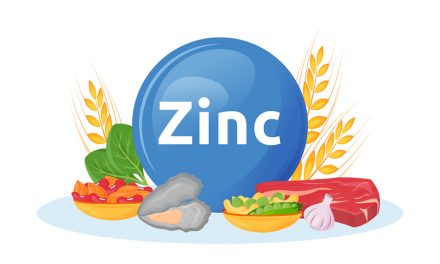If you’ve been on the hunt for a diet that promises quick and effective weight loss, look no further than the Zone Diet. This popular eating plan has garnered attention for its ability to help shed pounds while also promoting optimal health. But just how much weight can you expect to lose on the Zone Diet? In this article, we’ll explore the potential weight loss outcomes of following this structured approach to eating, providing you with valuable insights as you consider embarking on your weight loss journey with the Zone Diet.
Overview of the Zone Diet
The Zone Diet is a popular weight loss program that focuses on balancing macronutrients and controlling insulin levels to promote fat loss and improve overall health. It was developed by Dr. Barry Sears, a biochemist, and is based on the principle that achieving the right balance of carbohydrates, proteins, and fats in your diet can help control inflammation and optimize metabolism.
What is the Zone Diet?
The Zone Diet is a low-glycemic diet that emphasizes the consumption of lean protein, low-glycemic carbohydrates, and healthy fats in a specific ratio. The goal is to maintain a state of hormonal balance where insulin levels remain stable, preventing spikes and crashes in blood sugar levels. This balance is said to promote weight loss, enhance physical performance, and improve overall wellness.
How does the Zone Diet work?
The Zone Diet works by controlling the body’s production of insulin through the strategic combination of macronutrients. By consuming a balanced meal that consists of 40% carbohydrates, 30% protein, and 30% fat, the diet aims to keep insulin levels steady and prevent the storage of excess fat. The diet also encourages regular, controlled snacking to maintain stable blood sugar levels throughout the day.
Principles of the Zone Diet
The Zone Diet is based on four main principles: balancing macronutrients, controlling portion sizes, timing meals and snacks, and incorporating regular physical activity. By following these principles, the diet aims to optimize hormonal balance, control inflammation, boost metabolism, and ultimately promote weight loss and improved overall health.
Weight Loss Potential on the Zone Diet
Understanding weight loss
Weight loss occurs when the body is in a state of negative energy balance, meaning you are burning more calories than you consume. This typically leads to a reduction in body fat, as the body resorts to using stored fat as an energy source. The Zone Diet emphasizes the creation of a calorie deficit through portion control and balanced macronutrient ratios, which can contribute to weight loss.
Factors influencing weight loss
While the Zone Diet can facilitate weight loss, it is important to note that individual results may vary. Various factors can influence weight loss, including genetics, age, sex, metabolic rate, and overall lifestyle factors such as physical activity levels and stress levels. It is important to approach weight loss with realistic expectations and to focus on sustainable habits rather than solely on the number on the scale.
Calorie deficit on the Zone Diet
Creating a calorie deficit is essential for weight loss, and the Zone Diet can help achieve this through portion control and the balance of macronutrients. By consuming smaller, more frequent meals and snacks that contain the appropriate ratio of carbohydrates, protein, and fat, you can control your energy intake and potentially create a calorie deficit, leading to weight loss over time.

Effects on Metabolism
Impact of the Zone Diet on Metabolism
The Zone Diet can have a positive impact on metabolism by promoting stable blood sugar levels and reducing inflammation. By balancing macronutrients and controlling insulin levels, the Zone Diet can help regulate metabolism and optimize the body’s energy utilization.
The role of macronutrients in metabolic rate
Macronutrients, including carbohydrates, proteins, and fats, play a crucial role in the body’s metabolic rate. Each macronutrient has a different effect on metabolism, with proteins and fats generally requiring more energy to be metabolized compared to carbohydrates. The Zone Diet’s focus on a balanced ratio of macronutrients ensures that the body can efficiently convert food into energy and maintain metabolic health.
Effectiveness of the Zone Diet in Boosting Metabolism
While the Zone Diet can support metabolic health, it is important to note that individual results may vary. Some individuals may experience a temporary increase in metabolic rate when following the Zone Diet due to factors such as increased physical activity and improved insulin sensitivity. However, long-term effects on metabolic rate can vary depending on various factors such as age, genetics, and overall lifestyle habits.
Benefits of the Zone Diet for Weight Loss
Improved insulin sensitivity
One of the key benefits of the Zone Diet is its ability to improve insulin sensitivity. By controlling carbohydrate intake and avoiding high-glycemic foods, the diet helps maintain stable blood sugar levels and reduces the need for insulin secretion. This can result in improved insulin sensitivity, which is essential for weight management and overall metabolic health.
Balanced blood sugar levels
The Zone Diet focuses on consuming low-glycemic carbohydrates, which are digested more slowly and have a smaller impact on blood sugar levels compared to high-glycemic carbohydrates. By maintaining balanced blood sugar levels, the diet helps prevent spikes and crashes in energy levels and promotes sustained energy throughout the day. This can help reduce cravings and regulate appetite, contributing to weight loss.
Reduced inflammation
Chronic inflammation has been linked to weight gain and numerous health issues. The Zone Diet’s emphasis on consuming anti-inflammatory foods, such as fruits, vegetables, and omega-3 fatty acids, can help reduce inflammation in the body. By reducing inflammation, the diet may support weight loss and overall health.
Enhanced fat burning
The Zone Diet encourages the consumption of healthy fats, such as those found in avocados, nuts, and olive oil. These fats provide a valuable energy source and can promote satiety, helping to reduce overall calorie intake. Additionally, the balanced ratio of macronutrients in the Zone Diet can help the body efficiently utilize stored fat for energy, contributing to enhanced fat burning and weight loss.

Success Stories on the Zone Diet
Real-life examples of weight loss
Numerous individuals have reported successful weight loss outcomes on the Zone Diet. These real-life examples demonstrate the potential effectiveness of the diet in promoting sustainable weight loss. It is important to remember that individual results can vary, and long-term success on the diet depends on factors such as adherence, consistency, and overall lifestyle habits.
Case Studies on the Zone Diet
Some case studies have been conducted to evaluate the effects of the Zone Diet on weight loss and overall health. These studies have shown promising results, with participants experiencing improvements in insulin sensitivity, reduced inflammation, and weight loss. However, it is essential to look at a variety of studies and consider the limitations of each to draw well-rounded conclusions.
Positive feedback and testimonials
The Zone Diet has garnered positive feedback and testimonials from individuals who have successfully achieved their weight loss goals. Many people report increased energy levels, improved digestion, better sleep, and enhanced overall well-being while following the Zone Diet. These testimonials provide anecdotal evidence of the potential benefits of the diet but should be considered alongside scientific research and individual experiences.
Factors Affecting Weight Loss on the Zone Diet
Initial weight and body composition
Initial weight and body composition can influence weight loss on the Zone Diet. Individuals with higher initial body weights or higher percentages of body fat may experience more significant weight loss initially compared to those with lower starting weights or body fat percentages. It is important to focus on overall health and sustainable habits rather than solely on the number on the scale.
Fitness level and activity level
Physical activity plays a crucial role in weight loss and overall health. Combining the Zone Diet with regular exercise can enhance the calorie deficit and promote even greater weight loss. Additionally, exercise can improve cardiovascular health, increase lean muscle mass, and boost overall metabolism, which can further support weight loss efforts.
Consistency and adherence to the Zone Diet
Consistency and adherence to the Zone Diet are crucial factors in achieving and maintaining weight loss. Following the diet’s principles consistently, such as balancing macronutrients and controlling portion sizes, is essential for optimal results. Building sustainable habits and finding a meal plan that fits your lifestyle can help ensure long-term success on the Zone Diet.
Support system and guidance
Having a support system and seeking guidance from healthcare professionals or Registered Dietitians can be beneficial when following the Zone Diet. A strong support system can provide encouragement, accountability, and practical tips for overcoming challenges. Consulting with healthcare professionals can ensure that the diet is suitable for your specific needs and can provide guidance on maintaining nutrient adequacy.

Safe and Sustainable Weight Loss
The importance of gradual weight loss
Gradual weight loss is considered safer and more sustainable compared to rapid weight loss. The Zone Diet promotes gradual weight loss by creating a modest calorie deficit through portion control and balanced macronutrient ratios. This approach allows the body to adjust to the changes and helps prevent muscle loss, nutrient deficiencies, and other negative health consequences associated with crash diets.
A healthy rate of weight loss on the Zone Diet
A healthy and sustainable rate of weight loss is generally considered to be 1-2 pounds per week. While the Zone Diet can contribute to weight loss within this range, it is important to note that individual results may vary. Factors such as initial weight, body composition, activity level, and overall lifestyle can influence the rate of weight loss. It is important to prioritize overall health and well-being rather than solely focusing on the number on the scale.
Preserving lean muscle mass
Preserving lean muscle mass is important when aiming for weight loss. The Zone Diet promotes the consumption of lean protein, which is essential for maintaining and building muscle tissue. Regular resistance training exercises can also help preserve and build lean muscle mass. By preserving lean muscle, the body can maintain a higher metabolic rate, leading to more efficient weight loss and long-term weight management.
Avoiding crash diets and rebound weight gain
Crash diets, which often involve severe caloric restriction and rapid weight loss, can lead to rebound weight gain and negatively impact metabolic health. The Zone Diet’s emphasis on balanced nutrition, gradual weight loss, and long-term lifestyle changes helps avoid the pitfalls of crash diets. By adopting sustainable habits and making gradual changes to your eating patterns, you can achieve weight loss that is more likely to be maintained over time.
Potential Challenges on the Zone Diet
Understanding portion control
Proper portion control is essential for success on the Zone Diet. It can be challenging to accurately assess serving sizes and balance the appropriate ratio of macronutrients. It may be helpful to consult with a Registered Dietitian or utilize tools such as food scales or portion control guides to ensure accurate portion sizes and maintain the desired macronutrient balance.
Adapting to a new way of eating
Adapting to a new way of eating can be challenging, especially if you are accustomed to a different dietary pattern. The Zone Diet requires a shift in the types of foods consumed, as well as the frequency and timing of meals and snacks. Gradual changes and seeking support from healthcare professionals or Registered Dietitians can facilitate a smoother transition and increase the likelihood of adherence.
Dealing with food cravings
Food cravings can be a common challenge when following any diet. The Zone Diet’s emphasis on balanced macronutrients and regular snacking can help reduce cravings by preventing drastic fluctuations in blood sugar levels. However, it is important to develop strategies to manage cravings, such as focusing on nutrient-dense options, staying hydrated, practicing mindful eating, and finding healthy alternatives that still align with the Zone Diet principles.
Managing social situations and dining out
Social situations and dining out can present challenges when following a specific diet. The Zone Diet requires mindful food choices and portion control in these situations. Planning, communicating dietary needs to friends and family, and researching restaurant menus in advance can help navigate these situations and prevent feelings of restriction or deprivation.

Combining the Zone Diet with Exercise
Importance of physical activity
Incorporating regular physical activity is essential for weight management, and overall health, and complements the effects of the Zone Diet. Exercise can enhance the calorie deficit, promote lean muscle mass, boost metabolism, and support cardiovascular health. Aim for a combination of cardiovascular activities, such as walking or cycling, and strength training exercises to optimize the benefits of exercise on weight loss.
Choosing suitable exercises
Choosing suitable exercises depends on your fitness level, preferences, and any underlying medical conditions. It is important to select exercises that you enjoy and are physically able to perform. This can include activities such as brisk walking, jogging, swimming, weightlifting, or group fitness classes. Consulting with a healthcare professional or fitness expert can guide you in designing an exercise program tailored to your needs and goals.
Optimal exercise frequency and duration
The optimal frequency and duration of exercise can vary depending on individual factors such as fitness level, time availability, and specific goals. As a general guideline, aim for a minimum of 150 minutes of moderate-intensity aerobic activity or 75 minutes of vigorous-intensity aerobic activity per week. Additionally, incorporating strength training exercises at least two days per week can help build and maintain lean muscle mass.
The synergy between exercise and the Zone Diet
When combined with the Zone Diet, exercise can enhance overall weight loss and improve overall health outcomes. Exercise helps create a greater calorie deficit, promotes fat burning, supports muscle growth, and increases metabolic rate. The Zone Diet provides the necessary nutrients to fuel exercise performance and recovery, resulting in a synergistic effect that can further optimize weight loss and overall well-being.
Monitoring and Tracking Progress
Using measurements and body composition analysis
Monitoring progress on the Zone Diet goes beyond the number on the scale. Measuring other indicators, such as body composition, can provide a more comprehensive assessment of changes in fat mass, muscle mass, and overall body composition. Techniques such as body circumference measurements, skinfold caliper measurements, or advanced body composition analysis methods can provide insights into changes in body composition over time.
Weight loss apps and tools
Weight loss apps and tools can be valuable resources for tracking progress on the Zone Diet. These apps often include features such as food diaries, meal planners, calorie trackers, and weight-tracking functionalities. They can help you monitor your nutrient intake, track your calories, and evaluate your progress toward your weight loss goals. Utilizing these tools can enhance awareness, and accountability, and help identify areas for improvement.
Keeping a food journal
Keeping a food journal can be a helpful tool when following the Zone Diet. Recording your meals and snacks allows you to review your food choices, portion sizes, and macronutrient balance. It can help identify patterns, areas of improvement, and potential triggers for overeating or food cravings. Keeping a food journal can also increase mindfulness and promote greater awareness of your eating habits.
Consulting with healthcare professionals
Consulting with healthcare professionals, such as Registered Dietitians or medical practitioners, can provide valuable guidance and support throughout your weight loss journey on the Zone Diet. They can help create a personalized meal plan, address specific dietary concerns or medical conditions, and provide ongoing monitoring and support. Working with healthcare professionals ensures that you are receiving evidence-based advice and practicing the diet safely and effectively.
In conclusion, the Zone Diet is a balanced and structured approach to achieving weight loss and overall health. By focusing on macronutrient balance, portion control, and controlling insulin release, the diet aims to optimize metabolism, improve insulin sensitivity, and promote sustainable weight loss. While individual results may vary, the Zone Diet can provide beneficial effects such as enhanced fat burning, reduced inflammation, and balanced blood sugar levels. Building a support system, adopting sustainable habits, and incorporating regular exercise can further enhance the effectiveness of the diet. Monitoring progress through measurements, utilizing weight loss apps, and consulting with healthcare professionals can provide valuable insights and guidance throughout the journey on the Zone Diet.
© 2023 by NewsBucket.org All rights reserved. No part of this document may be reproduced or transmitted in any form or by any means, electronic, mechanical, photocopying, recording, or otherwise, without prior written permission of NewsBucket.org.




